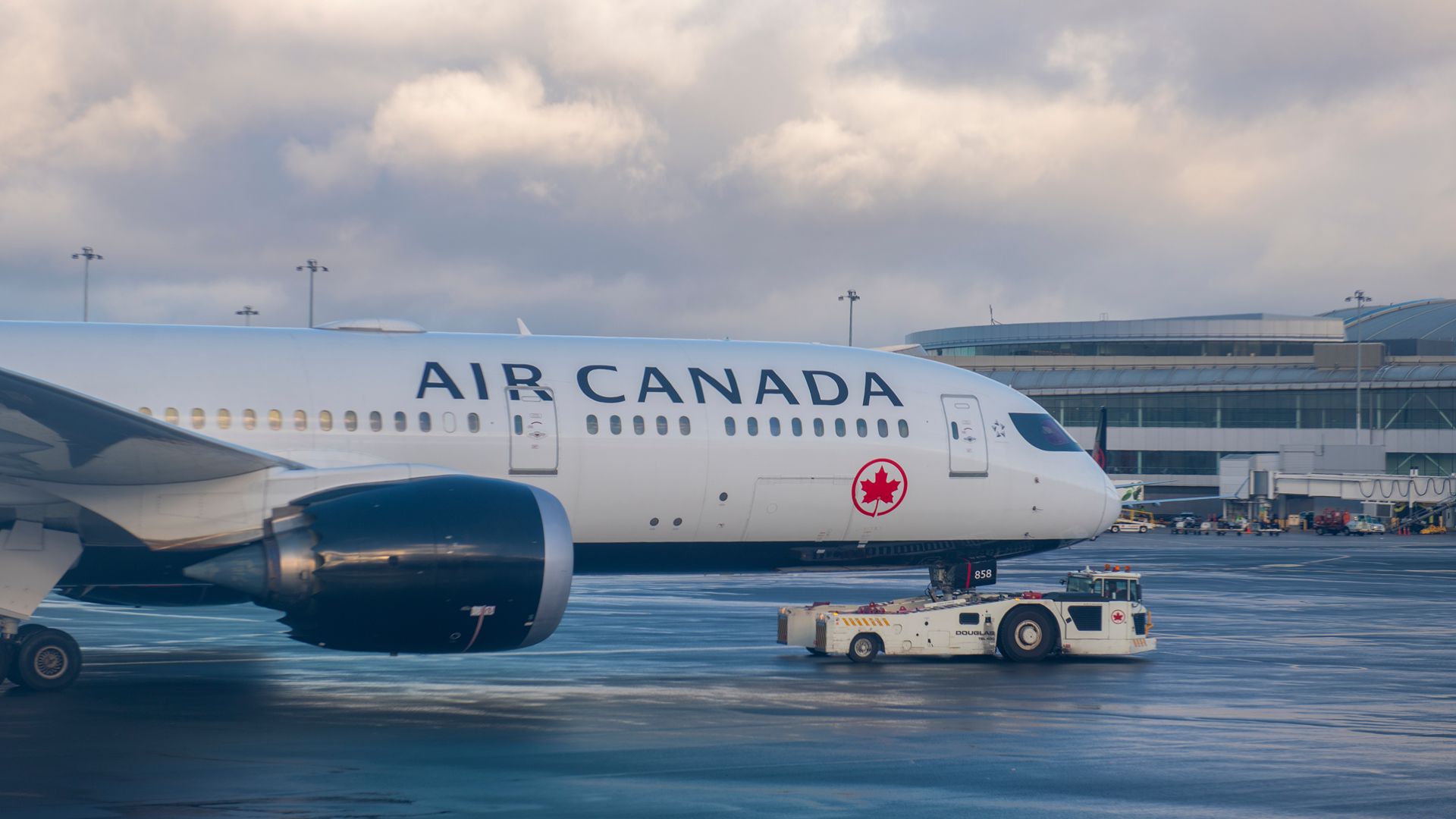World
US Reviews Pre-Clearance Program in Canada Amid Travel Decline

The United States is reevaluating its Pre-Clearance program at Canadian airports due to a significant drop in passenger numbers. This service, which has been operational for decades, allows travelers to complete US customs checks before departing Canada. The remarks were made by US Ambassador to Canada Pete Hoekstra during the Global Business Forum held in Banff, Alberta, where he indicated that the program may no longer be financially viable.
Hoekstra highlighted that the US government bears the costs of maintaining the Pre-Clearance facilities, suggesting that the declining travel between the two countries complicates justifying the program’s expenses. According to US Customs and Border Protection (CBP), the number of Canadian residents returning from the US by air dropped by over 25% in August 2023 compared to previous years.
Impact on Canadian Airlines
The potential end of the Pre-Clearance program could pose challenges for Canadian airlines that have benefited from the easier access it provides for passengers flying to the US. Hoekstra noted, “If you can’t make the numbers work anymore — you’re all business people. You know what that means.” This sentiment reflects the broader concern that maintaining the Pre-Clearance facilities may be financially untenable for the US.
Currently, eight Canadian airports offer Pre-Clearance services, including major hubs such as Toronto (YYZ), Vancouver (YVR), and Montreal (YUL). This service has been a significant advantage for Canadian carriers, allowing them to attract passengers seeking a more streamlined customs experience. Without Pre-Clearance, airlines could face increased operational costs, which may result in higher fares for travelers.
In the current climate, Canadian airlines are already scaling back their US routes. For instance, Air Canada has suspended eight routes to the US and is deploying smaller aircraft on many remaining routes due to decreased demand. Similarly, WestJet has eliminated several US routes in favor of expanding services to destinations in the Caribbean and Europe.
Historical Context and Future Considerations
The Pre-Clearance program has been active since 1952 and allows travelers to arrive in the US as domestic passengers, effectively bypassing long customs lines upon landing. It has facilitated smoother travel for millions, with over 22 million travelers utilizing the service in 2024 alone, marking Canada as the largest source of visitors to the US.
Despite the current downturn, former Canadian diplomat and forum moderator Colin Robertson emphasized the continued importance of Canadian travelers to the US economy, stating, “Canadians still visit the US an awful lot.” He warned that ending the Pre-Clearance program might be counterproductive, asking, “Doesn’t that cut off your nose to spite your face?”
As discussions continue, the future of the Pre-Clearance program hangs in the balance. The US government’s decision could reshape travel dynamics between the two countries, impacting airlines, tourism, and ultimately the experiences of millions of travelers.
-

 Science2 months ago
Science2 months agoToyoake City Proposes Daily Two-Hour Smartphone Use Limit
-

 Health2 months ago
Health2 months agoB.C. Review Reveals Urgent Need for Rare-Disease Drug Reforms
-

 Top Stories2 months ago
Top Stories2 months agoPedestrian Fatally Injured in Esquimalt Collision on August 14
-

 Technology2 months ago
Technology2 months agoDark Adventure Game “Bye Sweet Carole” Set for October Release
-

 World2 months ago
World2 months agoJimmy Lai’s Defense Challenges Charges Under National Security Law
-

 Technology2 months ago
Technology2 months agoKonami Revives Iconic Metal Gear Solid Delta Ahead of Release
-

 Technology2 months ago
Technology2 months agoSnapmaker U1 Color 3D Printer Redefines Speed and Sustainability
-

 Technology2 months ago
Technology2 months agoAION Folding Knife: Redefining EDC Design with Premium Materials
-

 Technology2 months ago
Technology2 months agoSolve Today’s Wordle Challenge: Hints and Answer for August 19
-

 Business2 months ago
Business2 months agoGordon Murray Automotive Unveils S1 LM and Le Mans GTR at Monterey
-

 Lifestyle2 months ago
Lifestyle2 months agoVictoria’s Pop-Up Shop Shines Light on B.C.’s Wolf Cull
-

 Technology2 months ago
Technology2 months agoApple Expands Self-Service Repair Program to Canada









